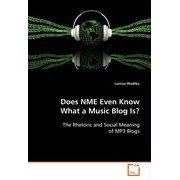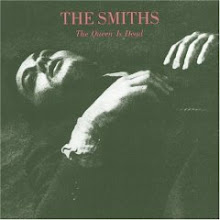 After waiting for a year, I finally got to see Julien Temple's documentary Joe Strummer: The Future is Unwritten, and it was definitely worth the wait. A bricolage of interviews, live performance footage, random archival footage, Strummer's sketches that had been animated, and voiceovers pieced together from earlier interviews was stitched together with Strummer's London Calling World Service broadcasts. It took me until the near end of the film to understand why most of the interviews with friends, family and celebrities, including John Cusack, Johnny Depp, Bobby Gillespie, and Anthony Kiedis, were conducted around campfires - in the latter years of his life, Strummer used the campfire as a metaphor for unity and harmony. In fact, the Christmas card that Strummer designed a few days before he died featured a Christmas tree and several little islands with campfires on them with boats of people heading towards the beacons of light.
After waiting for a year, I finally got to see Julien Temple's documentary Joe Strummer: The Future is Unwritten, and it was definitely worth the wait. A bricolage of interviews, live performance footage, random archival footage, Strummer's sketches that had been animated, and voiceovers pieced together from earlier interviews was stitched together with Strummer's London Calling World Service broadcasts. It took me until the near end of the film to understand why most of the interviews with friends, family and celebrities, including John Cusack, Johnny Depp, Bobby Gillespie, and Anthony Kiedis, were conducted around campfires - in the latter years of his life, Strummer used the campfire as a metaphor for unity and harmony. In fact, the Christmas card that Strummer designed a few days before he died featured a Christmas tree and several little islands with campfires on them with boats of people heading towards the beacons of light.Since I was already familiar with the story of The Clash, I learned the most from the film about Strummer's early life, including his time as a hippie, and his post-Clash life. For example, I hadn't been aware that he moved on a whim to Newport before he was in the 101ers or that he was one of those who broke into abandoned council buildings and squatted there. I found it interesting that in many respects he returned to his hippie roots later in life, attempting to reconcile the punk and hippie countercultures. I also hadn't realized how distant his relationship to his parents was. There were also some great humourous anecdotes that I hadn't known about, like when Topper Headon tells the story of how he called Strummer "Woody" when he first met him because Strummer's ears reminded him of Woody Woodpecker, completely unaware that "Woody" was the name associated with Strummer's past hippie persona; Strummer told him to "never fucking call me that again" and Headon wondered at Strummer's sensitivity.
One of the main things Temple's film achieves is painting a clearer picture of who Joe Strummer was, flaws and all. He was independent and tough, partly due to his nature, but also very likely because of his early separation from his parents and loss of his brother. At the same time, he could skillfully avoid confrontation, for which he was alternately labelled Machiavelli and a coward. As tough as he was, he was also sensitive, crying when he found out that news stations were playing Rock the Casbah over footage of Americans bombing Iraq. He was passionate - that was something that came across throughout the film, whether he was living life to its fullest by sleeping under the stars unnecessarily or preaching politics with The Clash or bringing people together around campfires, he was always honestly passionate. He was also a compassionate person who tried to look after others the best he could, giving fans money or a place to stay for the night, worrying about humanitarian causes, chastising the audience for booing Grandmaster Flash, and even looking after a young Courtney Love at her time of need. At the same time, he could be distant and unneccesarily cruel, shedding friends when they no longer suited him and often retreating from his children. Throughout the film, I grew to admire his courage as he faced traumatic experiences over and over; when the end of The Clash could have completely broken him, he did eventually fight and regain his footing. Just as intelligent as he was about world politics, he could be stubbornly silly about smoking, saying that non-smokers shouldn't be allowed to buy things that smokers had made. All in all, he was a rock 'n roll hero. And a human.
This film also made me agree with Bono for once: The Clash should have survived. When I look at the mistakes made by all parties involved, it makes my heart ache with the tragedy. Of course, at the same time, The Clash puts forth a conundrum that I've never been able to work out: when your band is based on being equal to your fans and your message speaks to living like a common person, how do you cope with massive success? It happens over and over again with bands, and generally the solution is either to implode and break up or to explode and lose credibility. In a sense, The Clash did both of those things. I guess I just wish The Clash could have found the magical answer to this problem and could have stayed together. I'll admit I nearly cried when I saw the footage of Strummer and Mick Jones playing White Riot for the Fire Brigades Union benefit, reuniting for the first and last time since The Clash. And it served to remind me of how much it hurt when I found out Strummer died just before there would likely have been a reunion for the Rock 'n Roll Hall of Fame. The remaining members posing for photos for the Hall of Fame honour seemed like a pyrrhic victory.
I left the movie theatre with a mixed feeling of triumph and sadness. After all the events that occurred in Strummer's life, many of them negative, Strummer's belief in humanity shocks me. I don't think I could have lived like he did and still come out the other end feeling that way, feeling that humans are inherently good. But in that way, Strummer inspires me. Though many people out there have probably already had the opportunity to see it, I highly recommend it for those who haven't seen it yet. And for those who have seen it, see it again.
More than anything else, this film made me realize how much I miss Joe Strummer.
Keys to Your Heart - The 101ers
The Magnificent Seven - The Clash
Johnny Appleseed - Joe Strummer & the Mescaleros





















































1 comment:
Blu Ray Converter
Convert Blu Ray Mac
Convert Blu Ray to AVI
Convert Blu Ray to DivX
Convert Blu Ray to MKV
Convert Blu Ray to MOV
Convert Blu Ray to MP4
Convert Blu Ray to MPEG
Convert Blu Ray to MPEG2
Convert Blu Ray to MPEG4
Convert Blu Ray to VOB
Convert Blu Ray to WMV
Convert Blu Ray to Xvid
Convert Blu Ray to HD
Convert Blu Ray to HD WMV
Convert Blu Ray to iPod
Convert Blu Ray to PS3
Convert Blu Ray to PSP
Convert Blu Ray to Xbox360
Post a Comment